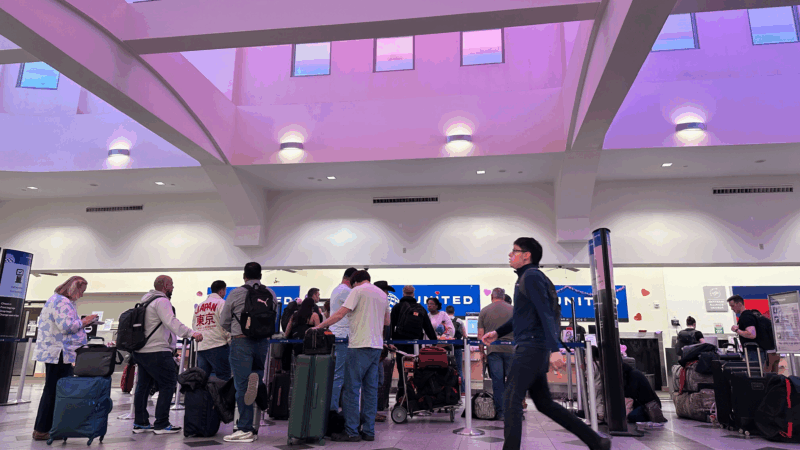DHL will stop shipping packages over $800 to U.S. customers due to new customs rules
The global shipping company DHL says it will stop shipping packages over $800 in value to U.S. consumers in response to new, more stringent U.S. customs rules.
The carrier cited the 10% tariffs implemented by the Trump administration in early April, which it says had the effect of subjecting parcels worth over $800 to increased scrutiny by U.S. customs inspectors. That has led to shipping backlogs, DHL said.
“This change has caused a surge in formal customs clearances, which we are handling around the clock,” DHL said in a statement. “While we are working diligently to scale up and manage this increase, shipments over USD 800—regardless of origin—may experience multi-day delays.”
When asked for comment by NPR, a U.S. Customs and Border Protection spokesperson did not directly address DHL’s announcement and provided general information about customs duties.
CBP says in a post on its website that so-called formal entry of packages to the U.S. can require shippers to complete “extensive paperwork” and file a CBP bond, while informal entry is “less arduous a process” in which the agency does the paperwork and calculates the duties to be paid.
DHL said its new temporary policy, which took effect on Monday, would apply to packages of over $800 sent from any foreign country to U.S. consumers.
The company said it will continue to ship business-to-business packages valued over $800 to U.S. companies, but those shipments may face delays.
Changes to U.S. customs rules come as part of President Trump’s effort to overhaul the government’s global trade policy, including by closing a loophole known as the de minimis exemption, which allows goods under a certain value to enter the U.S. without being charged import fees or facing rigorous inspections.
In early April, the Trump administration moved to end the de minimis exemption for products coming from China and Hong Kong. That change, which goes into effect on May 2, is expected to have an especially significant impact on e-commerce retailers that ship low-cost goods to the U.S., such as Shein and Temu.
According to a report released this year by the Congressional Research Service, the number of de minimis entries to the U.S. jumped from 153 million in 2015 to more than 1 billion in 2023. Currently, de minimis shipments account for 92% of all cargo entering the U.S., the CBP says.
AI brings Supreme Court decisions to life
Like it or not, the justices are about to see AI versions of themselves, speaking words that they spoke in court but that were not heard contemporaneously by anyone except those in the courtroom.
The airspace around El Paso is open again. Why it closed is in dispute
The Federal Aviation Administration abruptly closed the airspace around El Paso, only to reopen it hours later. The bizarre episode pointed to a lack of coordination between the FAA and the Pentagon.
‘Dawson’s Creek’ star James Van Der Beek has died at 48
Van Der Beek played Dawson Leery on the hit show Dawson's Creek. He announced his colon cancer diagnosis in 2024.
A Jan. 6 rioter pardoned by Trump was convicted of sexually abusing children
A handyman from Florida who received a pardon from President Trump for storming the U.S. Capitol on Jan. 6, 2021, was convicted on state charges of child sex abuse and exposing himself to a child.
A country-pop newcomer’s debut is your reinvention album of 2026
August Ponthier's Everywhere Isn't Texas is as much a fully realized introduction as a complete revival. Its an existential debut that asks: How, exactly, does the artist fit in here?
U.S. unexpectedly adds 130,000 jobs in January after a weak 2025
U.S. employers added 130,000 jobs in January as the unemployment rate dipped to 4.3% from 4.4% in December. Annual revisions show that job growth last year was far weaker than initially reported.







